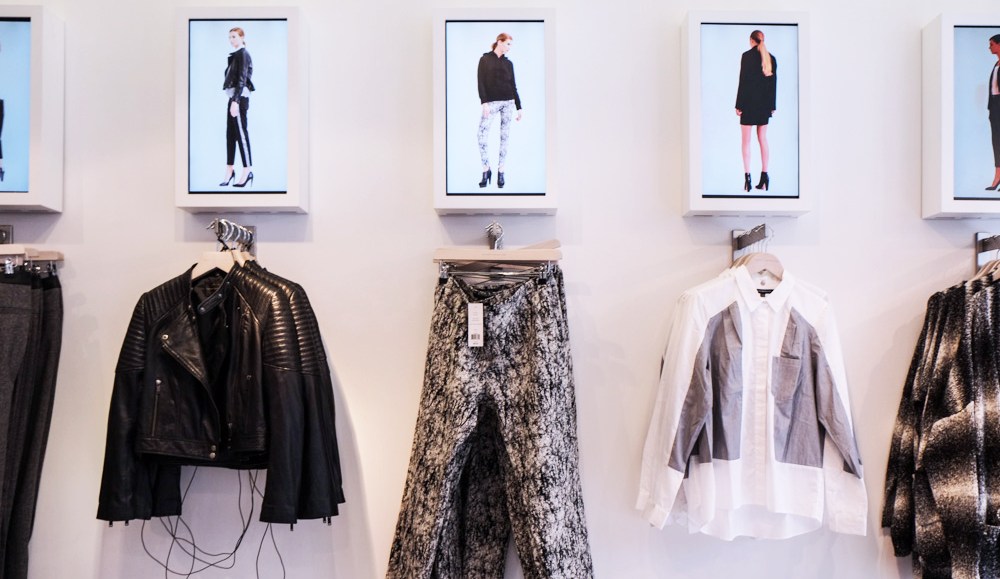Save 50% on a 3-month Digiday+ membership. Ends Dec 5.

Much of the conversation around how mobile technology will affect retail has recently revolved around in-store tracking. But a survey of the brands and retail experts at Digiday’s Retail Summit revealed that not all companies view retail similarly, and that few of them are all that obsessed with beacons. Rather, brands are more concerned with how to use mobile to effectively connect with consumers, tracking conversions between desktop and mobile and, of course, driving them into stores so they can ultimately buy their goods.
Below are the various responses to the simple question “How is mobile affecting retail?”
Susan Pennington, digital evolution manager, Sprint
We’re still trying to figure out how best to bring mobile technology into the physical retail space. The question we’ve been asking ourselves is, “If a Sprint phone walks into a Verizon store, or a Verizon phone walks into a Sprint store, what do we do?” That’s why beacons are very interesting to us.
Diana Klochkova, global social media lead, Levi’s
Everyone works in silos at Levi’s. We have a hard time integrating efforts across the board. Mobile creates a really big need to be in sync, because mobile isn’t its separate category; it needs to be at the heart of everything we do.
Lisa Archambault, display and social marketing manager, Zappos
Without having showrooms, our problem is knowing whether the person who we just communicated with on desktop is the same person we’re talking to on mobile.
Kelly DeGuzman, media manager, Sony
What I’m interested in is using mobile to track in-store visits. With vendors PlaceIQ and xAd, we can be a little smarter about using geo-fencing to target ads and seeing whether it correlates with someone visiting a store.
Jonathan Cohen, e-commerce manager, Dermalogica
Due to the extremely high open rates, we’re seeing on mobile devices, we’re actually finding out we can create text emails to generate interest in a product without the traditional lead times. We find people respond to simplistic emails on mobile rather than big thought-out designs.
Ad position: web_incontent_pos1
Tim Buckley, digital marketing manager, American Express
We’re finding different ways that we can give offers to our various retail partners through different social platforms like Facebook, Foursquare and Twitter.
Annamarie Bermundo, assistant vp of digital platforms, L’Oreal
We actually switched our site last year so that it’s optimized for any device. It’s fundamental because we’ve seen a massive shift to mobile, and we know consumers are using it in stores and to find locations.
Aaron Driver, digital media program manager, Williams Sonoma
The really big hang up is the attribution side of things. It’s going to take a vendor that can tie an ad exposure to a mobile purchase to help fix it for us.
Ethan Song, CEO, Frank & Oak
A typical retailer has two to three touchpoints with its consumers in a given year. When you’re in your consumer’s pockets, your interactions with them increase tenfold.
Kaleb Cho, marketing manager, Amazon
Although we’re seeing more and more customers buy from mobile, we still think of mobile as an informational channel versus a place where consumers make a purchase. Our challenge is making the shopping experience on mobile as smooth as possible.
Ad position: web_incontent_pos2
Steve Gibson, director of search marketing, Mazda
People are using it to look at other dealers and other models while they’re on our lots. We do retargeting campaigns on our own lots to combat competing dealers trying to reach them while they’re there.
More in Marketing

Ulta, Best Buy and Adidas dominate AI holiday shopping mentions
The brands that are seeing the biggest boost from this shift in consumer behavior are some of the biggest retailers.

U.K. retailer Boots leads brand efforts to invest in ad creative’s data layer
For media dollars to make an impact, brands need ad creative that actually hits. More CMOs are investing in pre- and post-flight measurement.
Ad position: web_bfu
